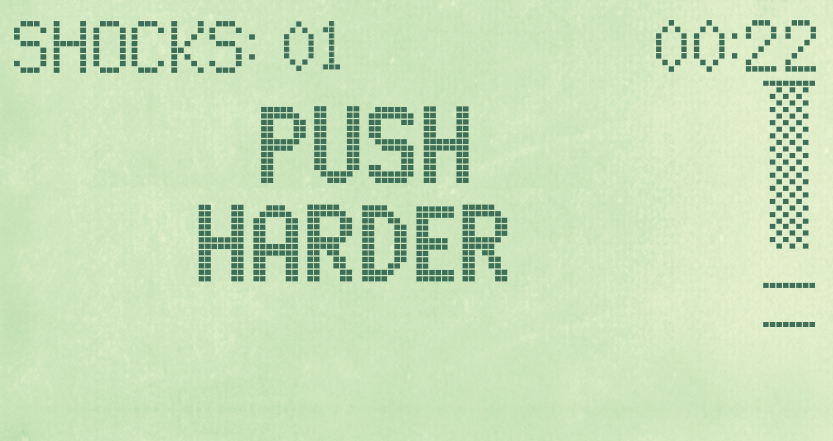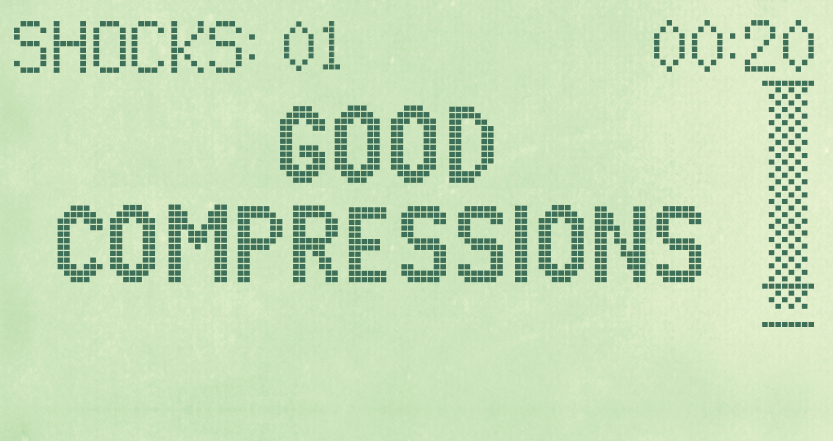Real CPR Help
The evidence is indisputable: high-quality CPR is the primary component in influencing survival from cardiac arrest.1 Not every patient will need a defibrillating shock, but every patient will need CPR.
ZOLL introduced Real CPR Help® in 2002, and it’s standard on every AED (automated external defibrillator) and professional defibrillator ZOLL sells.
Even for seasoned health care professionals, it’s hard to know if you are pushing hard enough and fast enough to meet current Guidelines for compression rate and depth. With Real CPR Help, you know. It provides audio and visual feedback that guides rescuers to deliver high-quality CPR.
See Real CPR Help in action in this online demo.
How Real CPR Help Works
Using accelerometer technology, a sensor inside ZOLL’s CPR electrodes captures the rate and depth of each compression. Once the electrodes are placed on the patient, the person providing CPR presses on the clearly marked hand placement indicator that covers the sensor. The information captured is sent to the defibrillator, where it is immediately processed and provided in real time to the rescuer.
Just Enough Help
On the AED Plus® and the AED Pro®, rescuers will hear—and see—“Push Harder” or “Good Compressions,” as well as encouragement to “Start CPR” if needed. On the R Series® and the X Series®, Real CPR Help provides numeric displays of both rate and depth, as well as verbal feedback, if desired, to “Push Harder” or “Good Compressions.” Thanks to Real CPR Help, more detailed information about CPR quality can be displayed on the CPR Dashboard™ on the R Series and X Series.
In addition, on all ZOLL AEDs and professional defibrillators, an adaptive metronome will guide you to provide the Guidelines-recommended rate of compressions. What you see and/or hear will depend on how your device is configured.

On the AED Plus, rescuers will hear the prompt “Push Harder” or “Good Compressions,” and the same message will appear on the AED screen.
On the X Series and R Series (shown above), CPR Dashboard provides the actual depth and rate of the compressions, as well as a compression release indicator so you know if you’re coming off the chest to allow for full recoil, and a PPI, or Perfusion Performance Indicator. If the indicator is completely full, you know that both depth and rate of compressions are within Guidelines.
Chances of Survival More than Doubled
Studies in Arizona and California prove that high-quality CPR saves lives and that Real CPR Help can improve CPR quality.2,3 A large study of EMS providers in Arizona showed that the odds of survival increased 2.7 times with ZOLL’s industry-exclusive Real CPR Help and scenario-based training.2 And survival to discharge and good neurological outcomes doubled after the implementation of a “resuscitation bundle” at the University of California San Diego Medical Center that included Real CPR Help and specialized training.3
Real CPR Help gives rescuers at every experience level real-time CPR feedback to provide high-quality CPR and the confidence that they are providing the best CPR possible.
1Meaney PA, et al. Circulation. 2013 Jul 23;128(4):417–35.
2Bobrow B, et al. Annals of Emergency Medicine. July 2013:62(1):47-56.31.
3Davis DP, et al. Resuscitation. 2015 Jul;92:63-9.


